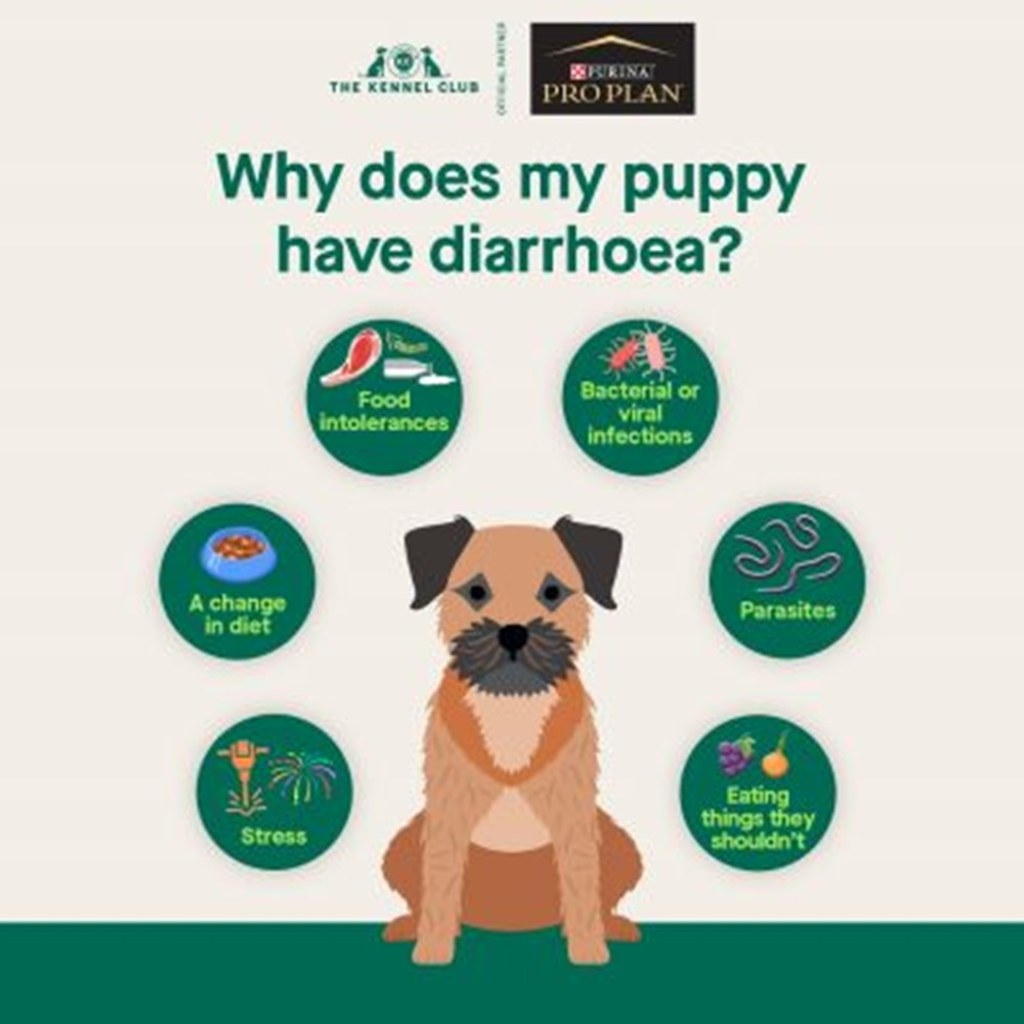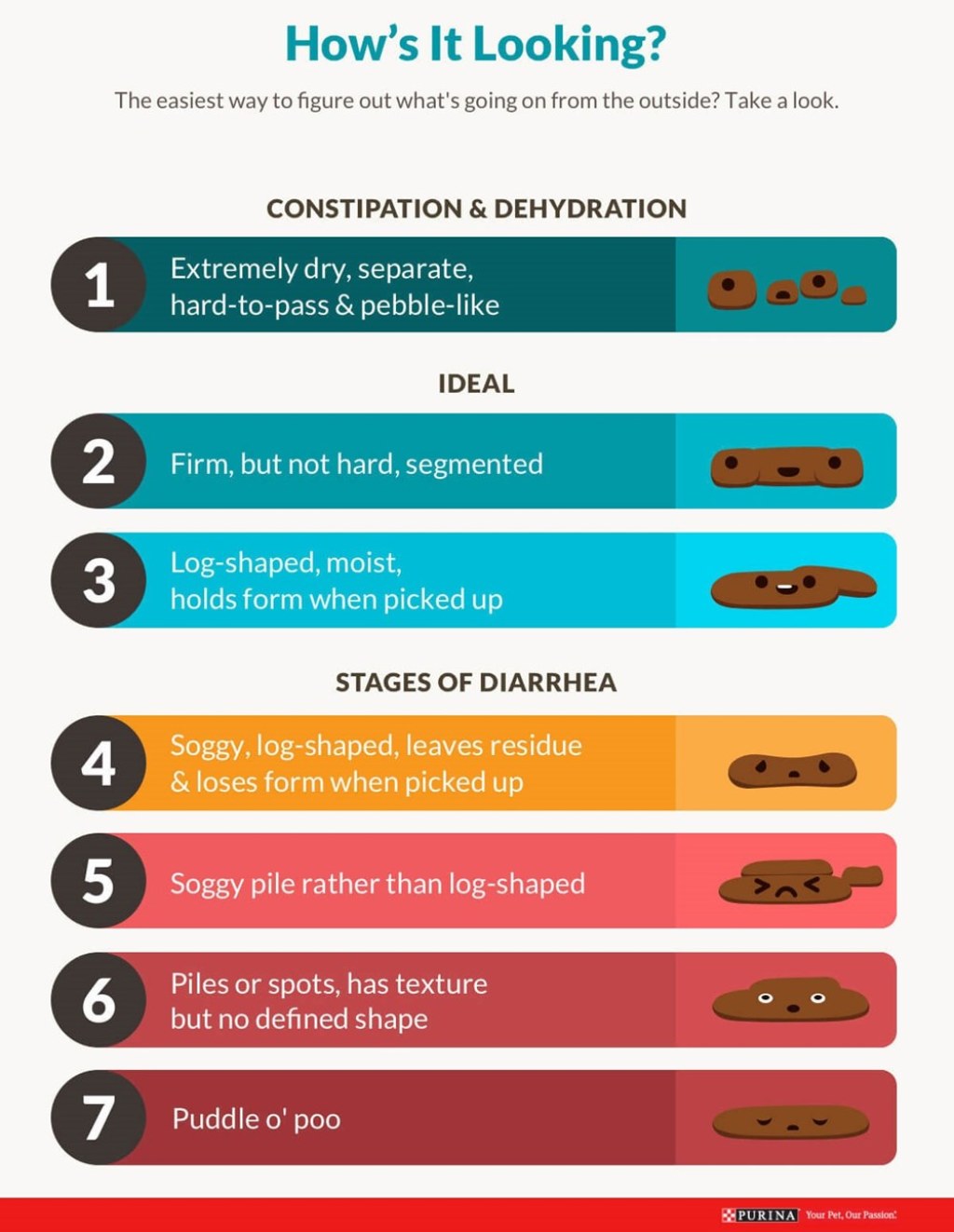Unraveling The Link: Can Teething Cause Diarrhea In Puppies? Discover The Truth And Take Action Now!
Can Teething Cause Diarrhea in Puppies?
Introduction
Dear Dog Lover,
3 Picture Gallery: Unraveling The Link: Can Teething Cause Diarrhea In Puppies? Discover The Truth And Take Action Now!



Are you a proud owner of a little furry friend who is going through the teething phase? As puppies start to develop their adult teeth, they may experience various discomforts, including diarrhea. In this article, we will explore the connection between teething and diarrhea in puppies, providing you with valuable insights and information to ensure the well-being of your beloved companion.

Image Source: thekennelclub.org.uk
Understanding the potential causes and consequences of diarrhea during teething is crucial for every dog owner. Let’s delve into this topic and find out how to handle this common issue effectively.
Table: Can Teething Cause Diarrhea in Puppies?
Information
Description
Topic
Can Teething Cause Diarrhea in Puppies?

Image Source: ytimg.com
Introduction
An overview of the article and its purpose.
What
Exploring the concept of teething and its potential effects on puppies.
Who
Identifying which puppies are more susceptible to diarrhea during teething.
When
Understanding when teething-related diarrhea is most likely to occur.

Image Source: thekennelclub.org.uk
Where
Exploring the location and symptoms of teething-related diarrhea in puppies.
Why
Uncovering the reasons behind the occurrence of diarrhea during teething.
How
Providing practical tips and solutions to alleviate teething-related diarrhea in puppies.
Pros and Cons
Highlighting the advantages and disadvantages of teething-related diarrhea.
FAQ
Answering frequently asked questions about teething and diarrhea in puppies.
Conclusion
Summarizing the key points and encouraging action for your puppy’s well-being.
Final Remarks
A final note on the importance of monitoring your puppy’s health and consulting a veterinarian if needed.
What
Teething is a natural process that puppies go through as they develop their adult teeth. During this stage, their baby teeth fall out, making way for their permanent teeth to grow. The teething process can cause discomfort and pain for puppies, leading to various symptoms, including diarrhea.
🐾 Diarrhea during teething: Puppies may experience loose stools or diarrhea during teething due to the increased production of saliva and the chewing behavior associated with teething. The excessive drooling can lead to swallowing more saliva, which may result in loose stools.
🐾 Inflammation and irritation: The teething process can cause inflammation and irritation in the puppy’s gums, leading to gastrointestinal disturbances. This inflammation can affect the digestive system, resulting in diarrhea.
🐾 Bacterial overgrowth: The changes in the puppy’s mouth during teething can create an environment favorable for bacterial overgrowth. This overgrowth can disrupt the balance of beneficial bacteria in the gut, leading to diarrhea.
🐾 Increased sensitivity: Teething puppies may become more sensitive to certain foods or treats, which can trigger gastrointestinal issues, including diarrhea.
🐾 Swallowing foreign objects: During teething, puppies have an increased tendency to chew on objects. Accidental ingestion of foreign objects can cause gastrointestinal blockages and diarrhea.
The above factors contribute to the potential link between teething and diarrhea in puppies. It’s essential to monitor your puppy’s behavior and provide appropriate care during this phase.
Who
While all puppies go through the teething phase, not all of them will experience diarrhea as a result. Some puppies may be more susceptible to teething-related diarrhea due to various factors:
🐾 Breed: Certain breeds may be more prone to gastrointestinal issues, including diarrhea, during teething. It is important to be aware of your puppy’s breed tendencies and take necessary precautions.
🐾 Sensitivity: Puppies with sensitive digestive systems may be more susceptible to diarrhea during teething. If your puppy has a history of gastrointestinal issues, it’s important to monitor their stool consistency and seek veterinary advice if needed.
🐾 Health conditions: Puppies with underlying health conditions, such as immune disorders or gastrointestinal diseases, may be at a higher risk of developing diarrhea during the teething process. Close monitoring and consultation with a veterinarian are crucial in such cases.
🐾 Age: The age at which puppies start teething can vary. Some puppies may begin teething as early as three months, while others may start around four to six months. Younger puppies may be more susceptible to diarrhea during teething.
Understanding your puppy’s individual characteristics and potential vulnerabilities can help you identify and address any issues related to teething-related diarrhea effectively.
When
The teething process in puppies typically starts between three and six months of age and can last for several months. During this period, puppies may experience diarrhea at different stages:
🐾 Early teething: As the puppy’s baby teeth start to fall out and the adult teeth begin to emerge, they may experience loose stools or diarrhea. This stage usually occurs around three to four months of age.
🐾 Intense teething: The most intense phase of teething usually takes place around four to six months of age. During this period, puppies may be more susceptible to diarrhea due to the increased inflammation and irritation in their gums.
🐾 Late teething: As the teething process nears completion, puppies may still occasionally experience loose stools or diarrhea. This phase typically occurs around six months of age.
It’s important to note that the timing of teething can vary among individual puppies. Monitoring your puppy’s dental development and being aware of the potential risk of diarrhea during these stages can help you take appropriate measures to ensure their well-being.
Where
Teething-related diarrhea in puppies can occur alongside the physical changes happening in their mouths. The following symptoms may indicate that your puppy is experiencing teething-related diarrhea:
🐾 Loose stools: Diarrhea during teething is often characterized by loose or watery stools. The consistency may vary from soft to liquid-like, depending on the severity of the diarrhea.
🐾 Increased frequency: Teething-related diarrhea may cause an increase in the frequency of bowel movements. Your puppy may need to go outside to relieve themselves more often than usual.
🐾 Straining or urgency: Some puppies may exhibit signs of straining or urgency while trying to defecate. This can be a result of the discomfort caused by teething and the associated inflammation and irritation in their digestive system.
🐾 Blood or mucus: In severe cases, teething-related diarrhea may contain blood or mucus. If you notice these signs, it’s essential to consult a veterinarian immediately.
If your puppy displays any of these symptoms, it’s crucial to observe their behavior closely and seek appropriate veterinary advice if necessary.
Why
The exact reasons behind the occurrence of diarrhea during teething in puppies are not fully understood. However, several factors contribute to this phenomenon:
🐾 Increased saliva production: Teething puppies tend to produce more saliva, which can result in swallowing excessive amounts of saliva. The swallowed saliva can lead to gastrointestinal disturbances and loose stools.
🐾 Gum inflammation and irritation: The teething process involves the eruption of new teeth, which can cause inflammation and irritation in the puppy’s gums. This inflammation can extend to the digestive system, leading to diarrhea.
🐾 Bacterial imbalance: The changes in the puppy’s mouth during teething can create an environment conducive to bacterial overgrowth. This overgrowth can disrupt the balance of beneficial bacteria in the gut, potentially causing diarrhea.
🐾 Chewing on inappropriate objects: Teething puppies often have a strong urge to chew on objects to relieve discomfort. Accidental ingestion of inappropriate items can lead to gastrointestinal blockages and diarrhea.
While the exact mechanisms are not yet fully understood, it is important to be aware of these potential factors and take necessary precautions to minimize the risk of teething-related diarrhea.
How
As a responsible dog owner, there are several practical tips and solutions you can implement to alleviate teething-related diarrhea in puppies:
🐾 Provide appropriate chew toys: Offer your puppy a variety of safe and suitable chew toys to satisfy their teething needs. This can help redirect their chewing behavior from inappropriate objects and reduce the risk of gastrointestinal issues.
🐾 Monitor their diet: Ensure your puppy is on a balanced and nutritious diet suitable for their age and breed. Avoid introducing new foods or treats during the teething phase, as it may trigger gastrointestinal disturbances. Stick to their regular diet to minimize the risk of diarrhea.
🐾 Maintain good oral hygiene: Regularly brush your puppy’s teeth and gums to promote healthy dental hygiene. This can reduce the risk of gum inflammation and bacterial overgrowth, which can contribute to diarrhea.
🐾 Offer cold relief: Chilled teething toys or a wet washcloth placed in the freezer for a short time can provide soothing relief to your puppy’s sore gums. The cold temperature can help reduce inflammation and discomfort.
🐾 Consult a veterinarian: If your puppy’s teething-related diarrhea persists or worsens, it’s important to seek veterinary advice. A veterinarian can provide a thorough examination, diagnose any underlying issues, and recommend appropriate treatments or medications if necessary.
By following these tips, you can effectively manage teething-related diarrhea and ensure your puppy’s overall well-being during this developmental phase.
Pros and Cons
As with any situation, there are advantages and disadvantages to teething-related diarrhea in puppies:
Advantages:
🐾 Natural process: Teething is a natural part of a puppy’s development, indicating that they are growing and developing their adult teeth.
🐾 Temporary phase: Teething-related diarrhea is usually a temporary issue that resolves as the puppy’s teeth fully emerge and their gums heal.
🐾 Opportunities for bonding: Providing appropriate care and comfort during this phase can strengthen the bond between you and your puppy.
Disadvantages:
🐾 Discomfort for the puppy: Teething-related diarrhea can cause discomfort and potentially lead to other issues, such as loss of appetite or dehydration.
🐾 Potential health risks: In severe cases, teething-related diarrhea can lead to dehydration and nutritional deficiencies. It’s crucial to monitor your puppy’s condition and seek veterinary advice if needed.
Understanding the pros and cons can help you approach teething-related diarrhea with a balanced perspective and take appropriate measures for your puppy’s well-being.
FAQ
1. Can teething cause diarrhea in puppies?
Answer: Yes, teething can cause diarrhea in puppies due to increased saliva production, gum inflammation, and bacterial imbalance. It is a common occurrence during the teething phase.
2. How long does teething-related diarrhea last?
Answer: Teething-related diarrhea is usually temporary and lasts for a few days to a couple of weeks. If it persists or worsens, it is advisable to consult a veterinarian.
3. What can I do to alleviate teething-related diarrhea?
Answer: Providing appropriate chew toys, maintaining good oral hygiene, monitoring their diet, and offering cold relief can help alleviate teething-related diarrhea in puppies. Consulting a veterinarian is recommended if the symptoms persist.
4. Are there any home remedies for teething-related diarrhea?
Answer: While there are various home remedies suggested, it is essential to consult a veterinarian before trying any home remedies for teething-related diarrhea. They can provide expert guidance tailored to your puppy’s specific needs.
5. When should I be concerned about my puppy’s teething-related diarrhea?
Answer: You should be concerned if your puppy’s diarrhea persists for more than a couple of weeks, is accompanied by severe symptoms such as blood or mucus, or if your puppy shows signs of dehydration
This post topic: Puppies


